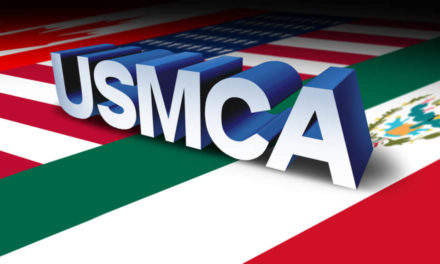Massachusetts Senator and Democratic primary hopeful Elizabeth Warren unveiled her latest proposal Tuesday, this time to overhaul the country’s bankruptcy laws in a direct shot at former Vice President and current front-runner Joe Biden.
The legislation Warren is seeking to rewrite is a decade old and when it first became law, Biden supported and she opposed it.
“I’m announcing my plan to repeal the harmful provisions in the 2005 bankruptcy bill and overhaul consumer bankruptcy rules in this country to give Americans a better chance of getting back on their feet,” Warren wrote in a blog post on Medium, where she has shared most of her new policy ideas and proposals.
Warren was a Harvard Law School professor and one of the country’s leading scholars on bankruptcy law in her time before joining the Senate. While the 2005 law was in Congress, she was adamantly opposed to it while Biden, then one of two Delaware senators, had a big part in getting the law passed.
And now the more progressive Warren, sliding in the polls for months after surging into a virtual dead heat in October, is ready to duke it out with the more moderate Biden. The day after Biden made his campaign official, Warren accused him of siding with credit card companies.
“Our disagreement is a matter of public record,” she said then.
Warren stopped short of calling out Biden by name in her new bankruptcy plan, but did write that she “lost that fight in 2005, and working families paid the price. But I didn’t stop fighting to hold the financial industry accountable and to help American families.”
Warren went on to help create the Consumer Financial Protection Bureau, a federal regulator established after the 2008 financial crisis to help protect Americans from predatory lenders, which in part helped lead to the ’08 crisis. Of course, the CFPB has largely been gutted by the Trump administration amid deregulation efforts.
Bankruptcy hasn’t exactly been a hot topic during this lead up to the Democratic primary, but Warren said it is a central theme within her DNA.
“I spent most of my career studying one simple question: why do American families go broke?” she wrote in her blog post.
CNBC sought comments from Biden about Warren’s plan but he did not respond. In May Biden said in 2005 it was a “certainty that the Republican-controlled Congress and White House would turn the bankruptcy bill into law.”
The former Vice President “fought for and won important concessions for middle class families in it, including protecting access to Chapter 7 forgiveness for working people, making child support and alimony the number one priority for debt payments — in front of big banks and credit card companies — and forcing credit card companies to warn borrowers about their interest rates,” Biden’s campaign said then.
Warren’s plan will make it easier for people to declare bankruptcy and seek debt relief, including ending “the absurd rules that make it nearly impossible to discharge student loan debt.”
The plan also will address racial and gender inequities, and make it easier for people to pay their bills and put food on the table during the bankruptcy process.
“Thanks in part to the 2005 bankruptcy bill, our current system makes it far too hard for people in need to start the bankruptcy process so they can get back on their feet,” Warren wrote. “My plan streamlines the process, reduces costs, and gives people more flexibility in bankruptcy to find solutions that match their financial problems.”
Her plan specifically targets the 2005 provisions that made the process of filing for bankruptcy more complicated and expensive by getting rid of filing fees for people below the poverty line and let Chapter 7 filers pay attorney fees during or after the filing instead of up front. The plan also would reduce the cost of hiring an attorney, Warren said.
The plan also takes aim at Chapter 13 bankruptcy, which she called a “longer and less generous” process than Chapter 7.
Chapter 7 bankruptcies cost about $1,200 while Chapter 13s cost about $3,200, and filers are disproportionately drawn to Chapter 13, Warren said, citing data reported by ProPublica.
“Forcing people into Chapter 13 because they cannot afford to pay their lawyer up front is a ridiculous way to run a consumer debt relief system,” Warren wrote.
“When people file for bankruptcy, they would disclose all of their debts, assets, and income, just as they do now,” she wrote. “And just as under the current system, creditors must stop all collection actions against the debtor outside of bankruptcy court.”
“The menu of options available would include a Chapter 7-type option of surrendering all non-exempt property in exchange for having their unpaid debts ‘discharged,’ as well as options that allow people to deal with specific financial problems without involving all of their obligations,” she wrote, adding that it would make filing “cheaper and quicker.”
“And speed is important. Research has shown that the ‘sweatbox’ period when consumers wrestle with the decision to file for bankruptcy is particularly damaging to families and their financial health,” she wrote. “The 2005 law benefited credit card companies by extending the sweatbox period.”
Warren also says her plan closes “loopholes” in bankruptcy law, such as the “Millionaire’s Loophole,” which protects some trusts from bankruptcy claims, and also would block individuals from using bankruptcy as a shield to protect against civil rights claims like debts arising from police brutality.




